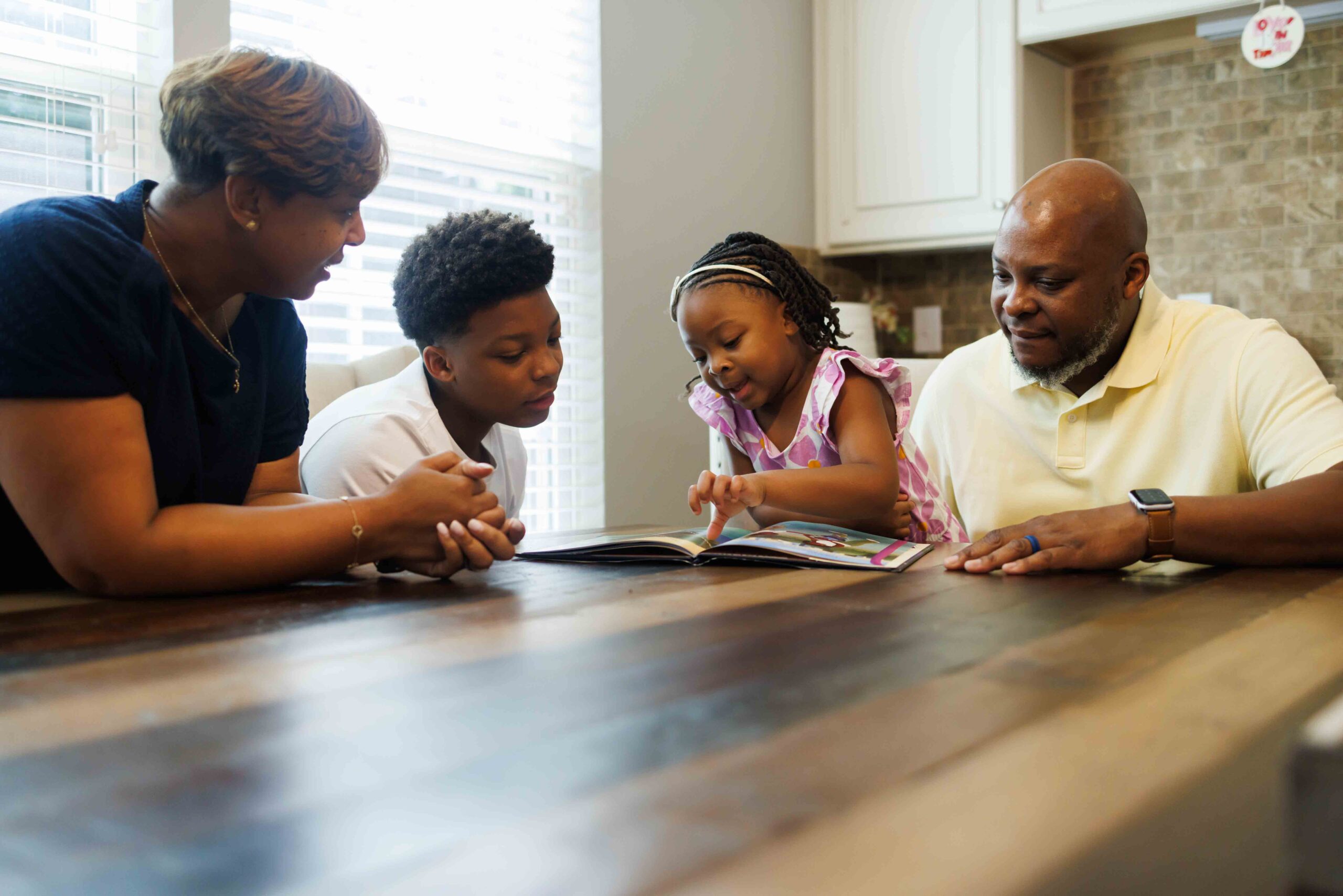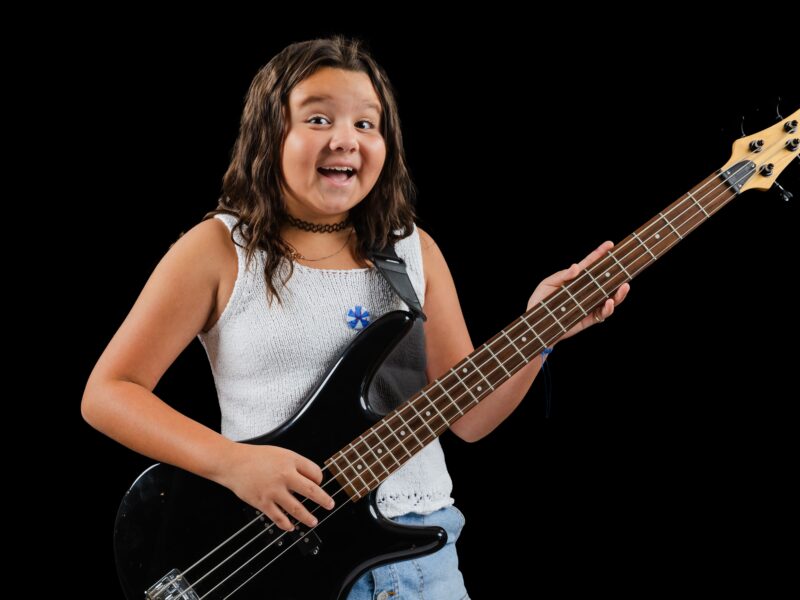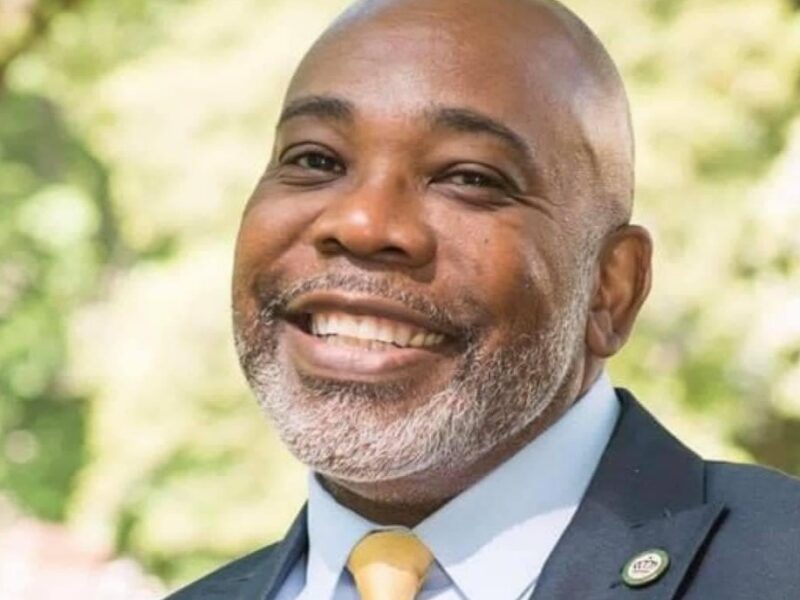
Literacy Listens: Read Charlotte Launches a New Podcast to Strengthen Reading Comprehension
Helping every child become a confident reader takes collaboration, creativity — and sometimes, a new way of listening. That’s the idea behind Literacy Listens, a new podcast from Read Charlotte that turns the latest research on reading comprehension into practical insights for educators.
As a civic initiative housed at Foundation For The Carolinas, Read Charlotte works with families, schools and community partners to improve early literacy across Mecklenburg County. We sat down with executive director Munro Richardson and impact manager, Catherine Sluga from the Read Charlotte team to learn more about their mission, why listening comprehension matters and how this new podcast is helping teachers turn research into results.
About Read Charlotte
For readers who may not be familiar, can you give a quick overview of what Read Charlotte does and the impact you’re striving for in our community?
Munro: Read Charlotte is a civic initiative at Foundation For The Carolinas that brings together families, educators and community partners to improve early literacy from birth through elementary school. We don’t run programs — our partners do. We help organizations big and small use state-of-the-art research and data to drive their impact. We serve four key roles in our community: convenor, catalyst, advisor and advocate. Informally, we’re an outsourced program officer for the local funding community on early literacy.
What drives your mission to improve literacy outcomes for children in Charlotte-Mecklenburg?
Munro: Improving economic opportunity and mobility is a key focus in our community. We know that ensuring children are strong readers is foundational to that goal. Our focus on early literacy complements the work of our sister initiatives at FFTC, such as Leading On Opportunity and the Charlotte Executive Leadership Council.
Why is listening comprehension such an essential focus area?
Munro: The goal of reading is comprehension – the ability to understand and derive meaning from information. This information can be written text, spoken language or other forms of communication. It involves more than just decoding written words; it requires using background knowledge, vocabulary and critical thinking to interpret and make sense of what is being presented. These abilities can begin to develop very early as children develop oral language skills. A child’s language and listening comprehension skills in Pre-K is a good predictor of their eventual reading comprehension ability in third grade. Because these skills develop more slowly than word reading skills, we need to focus on building children’s listening comprehension skills early and often. One key practice is frequent shared reading with children in ways that build knowledge, vocabulary and critical thinking skills. Closing gaps in early opportunities to build language and listening comprehension skills is a key opportunity and challenge to improve reading outcomes in our community.
The Podcast Launch
Tell us about the new podcast — what inspired you to create it?
Catherine: We developed Literacy Listens as a professional learning podcast series, to strengthen educators’ understanding and instruction of listening comprehension, which is a critical literacy skill. Comprehension of oral text (read alouds, oral stories, audiobooks, etc.), or listening comprehension, is one of the strongest early predictors of reading comprehension. A child’s listening comprehension ability is a key pathway toward reading comprehension.
In April 2024, we heard from more than 30 North Carolina educators during focus groups centered on listening comprehension. Unfortunately, listening comprehension doesn’t receive as much attention in teacher preparation as other literacy skills. These teachers emphasized the need for accessible, bite-sized professional learning opportunities to explain the research behind listening comprehension – and what they could do in the classroom. Importantly, as busy professionals, they wanted something they could engage with on their own time. This feedback prompted us to develop Literacy Listens.
We’d already built a website that contains both a knowledge base and directory of materials, but we wanted to make the learning even more accessible. I’ve always loved podcasts myself – prior to joining the Read Charlotte team, I was a teacher and often played literacy podcasts during my planning time. The format felt like a natural fit. Once we discovered tools like NotebookLM and then Wondercraft AI, we realized we could use new technology to bring the research to life in a conversational, engaging way, without needing a studio or a production team.
Who is your primary audience, and how do you hope they’ll use this resource?
Catherine: We’re creating this for educators, including teachers, literacy coaches, and anyone helping students learn to read or supporting teachers in this work. We designed Literacy Listens so they can learn on the go, during a commute, a planning period or whenever they have a few spare minutes. Each short episode distills the latest research and connects it to everyday teaching decisions.
We’re also developing self-paced learning modules for ListeningComprehension.org, where educators can dive deeper into the content. The podcast can serve as a companion to these modules or as a standalone resource.
We’re also developing self-paced modules for ListeningComprehension.org, so the podcast can serve as a companion to those or stand on its own as a quick learning tool.
Why did you decide that a podcast format was the best way to share these tips?
Catherine: A podcast gives us the flexibility to meet teachers where they are, literally. It’s portable, easy to share and approachable. We’ve spent a lot of time making the research accessible on our website, and hearing it discussed adds another layer of clarity and connection.
I’ve seen firsthand how powerful podcasts can be. Years ago, listening to Emily Hanford’s Sold A Story series helped spark important conversations in my own school about reading instruction and ultimately, real changes in student outcomes. That experience reinforced for me how an engaging podcast can be a catalyst for improvement.
Can you give us a sneak peek of the kinds of topics or tips listeners can expect?
Catherine: The podcast focuses mainly on the role of listening comprehension, what it is, why it matters and how teachers can make intentional instructional moves to target it in the classroom. Early episodes introduce concepts like defining listening comprehension and unpacking the underlying skills that directly contribute to reading comprehension. We also explore ways to assess listening comprehension and provide strategies teachers can apply right away.
What do you hope educators and others working with youth will take away from each episode?
Catherine: We hope listeners walk away with a clearer understanding that listening comprehension plays a critical role in developing the skills necessary for students to become proficient readers. By deepening that understanding, educators can better target instruction and support students who may struggle with reading for reasons beyond decoding. Our goal is to help close the gap between the latest reading science about listening comprehension and classroom practices.
Personal Perspectives
What excites you most about this new way of connecting with your audience?
Catherine: It’s exciting to share our work in a completely new format. We’ve spent many hours over the past two and a half years curating and organizing research on listening comprehension. Now we can deliver it in a way that feels fresh and digestible. We know how busy educators are, and we hope providing information in this format meets a need for accessible professional learning. Hearing our work come to life through the power of AI technology, and realizing how well it represents the information we want to share with educators, has been really rewarding.
How do you hope this podcast will help move the needle on reading comprehension in our community?
Catherine: Teachers play such a critical role in helping students develop the skills that lead to strong reading comprehension. Across the community, educators are doing incredible work, and the district has made important strides in ensuring that practices in the classroom are grounded in the latest reading science.
Our hope is that Literacy Listens adds another layer of support, giving teachers and literacy leaders a quick, accessible way to connect recent research with their daily instruction. When educators have strong, practical tools, we create conditions for more children to become confident, successful readers.
Anything else you’d like to share?
Catherine: We’re so grateful to our partners and the educators who provided crucial feedback that inspired this work. Literacy Listens will be available on our Listening Comprehension Resource Center website, as well as on Spotify, Apple, and YouTube. We invite anyone invested in supporting strong literacy outcomes for students in our community to tune in.
Check out the Literacy Listens podcast on XXXX.




